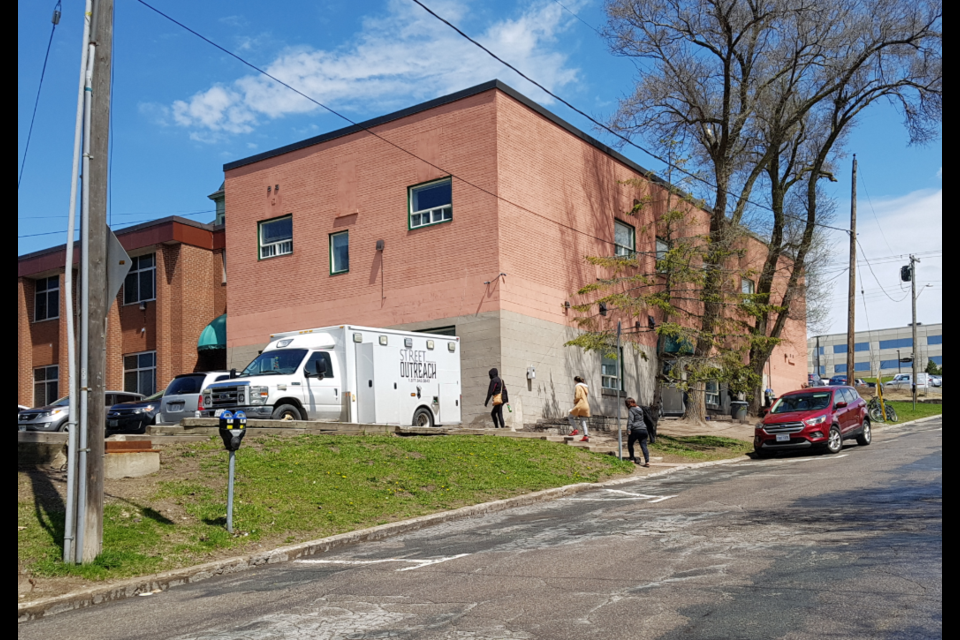Local shelters have received a two-week extension for funding which will allow them to continue the emergency hotel shelter model operating at the Travelodge in Barrie.
Officials with the Elizabeth Fry Society Simcoe Muskoka and The Busby Centre received notice Friday afternoon that the emergency hotel shelter program, developed as a response to COVID-19, will receive an extension at a reduced capacity.
Originally set to end June 30, the local organizations will now have until July 15 to transition back to their home emergency shelter locations while they work in collaboration with the County of Simcoe, City of Barrie, Simcoe Muskoka District Health Unit and community service organizations toward finding a responsible solution to an alternate site in order to accommodate the increased number of people requiring emergency shelter space in the region.
While happy for the extension, Busby Centre executive director Sara Peddle told BarrieToday a solution is still very much needed to help address the increasing number of homeless in the region.
“We are grateful for any type of breathing room, otherwise we would have had to have a bunch of people without any shelter out by next Thursday," she said.
Peddle said the plan is to use those extra 14 days to continue to look for alternate solutions and space, as well as to move some individuals back to the centre’s 88 Mulcaster St. location next week
“They are reducing the number of rooms we have at the Travelodge. We are still hopeful that we will find a better and more secure solution so that we are not having to do this two weeks at a time,” she said. “It puts a lot of pressure on the organization and the participants that are using our services and definitely our staff.”
Peddle added she would like to see continued conversations with various levels of government to set up a better transition from the pandemic response while local organizations wait for housing to be invested in and built in the community.
“Yes, the hotel is an expensive solution to the homelessness crisis, but it definitely will be more expensive to the community if we end up turning everybody out to the street,” she said, “Health care and that sort of stuff, we will definitely see the impact. We hope to find a solution within the next couple of weeks so that we can make that transition happen as soon as possible.”
Several alternate sites are under review, however a solution to meet the current need and requirements of an alternate location has yet to be confirmed.
Over the course of the pandemic, the hotel shelter model has been the only available solution that would accommodate the amount of people currently experiencing unsheltered homelessness in Barrie, noted a joint press release from the two organization, adding they both remain committed to seeking safe transition solutions for shelter participants and employees of both agencies.
Although pandemic-related funding allowed expansion of temporary emergency shelter beds in Barrie, the lack of affordable housing options and unattainable rental rates for people experiencing poverty and homelessness in our community remains a crisis post-pandemic.
Without immediately available affordable housing, or enough alternate emergency shelter options, people experiencing homelessness are forced to live in unsheltered locations forgoing safety, food security, and will have limited access to regular basic needs and transitional support to obtain housing.
“We believe that without a responsible and safe transition solution to support the individuals currently in the shelter system, and support from all levels of government, this crisis could result, not only in detrimental, dangerous and criminalized outcomes for marginalized people, but also much higher cost to other services such as hospitals and other emergency servicesl," said the release.
The 2022 Homelessness Enumeration Preliminary Report indicates that 50 per cent of the 722 people surveyed that were experiencing homelessness were living in Barrie. The report also noted that 70 per cent of those surveyed were experiencing chronic homelessness,
Together, the two organizations are currently providing emergency shelter to approximately 170 individuals each night in home and hotel locations — and served a combined 1,100 unique individuals in 2021 — more than double of what the organizations served prepandemic.
